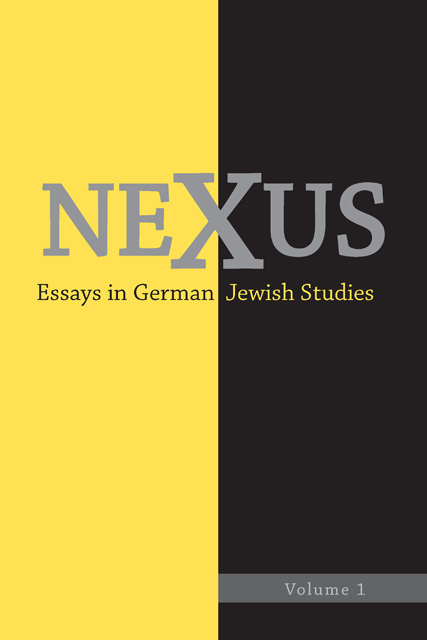Auerbach, Heine and the Question of Bildung in German and German Jewish Culture
Published online by Cambridge University Press: 10 February 2023
Summary
This essay reconsiders the Bildung-thesis about German Jews put forth by the late George Mosse and elaborated upon by David Sorkin. That thesis argues that German Jews increasingly made Bildung the central principle around which they constructed their sense of Jewish identity, producimg thereby a harmonious, if invisible, Jewish subculture. While acknowledging the power of this model, this essay nonetheless seeks to question some of its assumptions. It does so by focusing on the works of Berthold Auerbach and Heinrich Heine, by exploring, that is, the subject of Bildung from the inside, as it were. Close readings of their works reveal that Auerbach and especially Heine at times responded with considerable ambivalence to the pursuit of Bildung and its effects. Heine, in particular, drew attention to the relationship between Bildung and power and called into question — sometimes unwittingly — the capacity of Bildung to produce a harmoniously integrated transformation of Jewish life in Germany.
I
THE MID TO LATE 1980S witnessed a powerful challenge to more traditional approaches to the study of Jews in Germany. Until that time such studies were dominated by two models, one of which tended to dwell apologetically on the Jewish contribution to modern German history while the other stressed alternatively the process of Jewish integration, assimilation, and emancipation into German society. In 1985, however, George Mosse published a collection of lectures titled German Jews Beyond Judaism which argued that, as they departed from traditional Jewish life, German Jews replaced religious practice with Bildung as the central principle around which they constructed their sense of Jewish identity. Taking up Mosse’s point, David Sorkin extended it to argue more comprehensively that between 1780 and the mid nineteenth century, there emerged a veritable German Jewish subculture, one that attested to a new cohesiveness in the Jewish community despite the widely divergent paths — from secularized to (neo-) orthodox — of Jewish entry into German culture and society. Though invisible to the Jews themselves, the institutions they founded and the particular symbolic value they attached to Bildung gave expression to this German Jewish subculture and community.
While acknowledging the power of this new model, this essay nonetheless seeks to question some of its assumptions.
- Type
- Chapter
- Information
- Nexus 1Essays in German Jewish Studies, pp. 85 - 108Publisher: Boydell & BrewerPrint publication year: 2011



